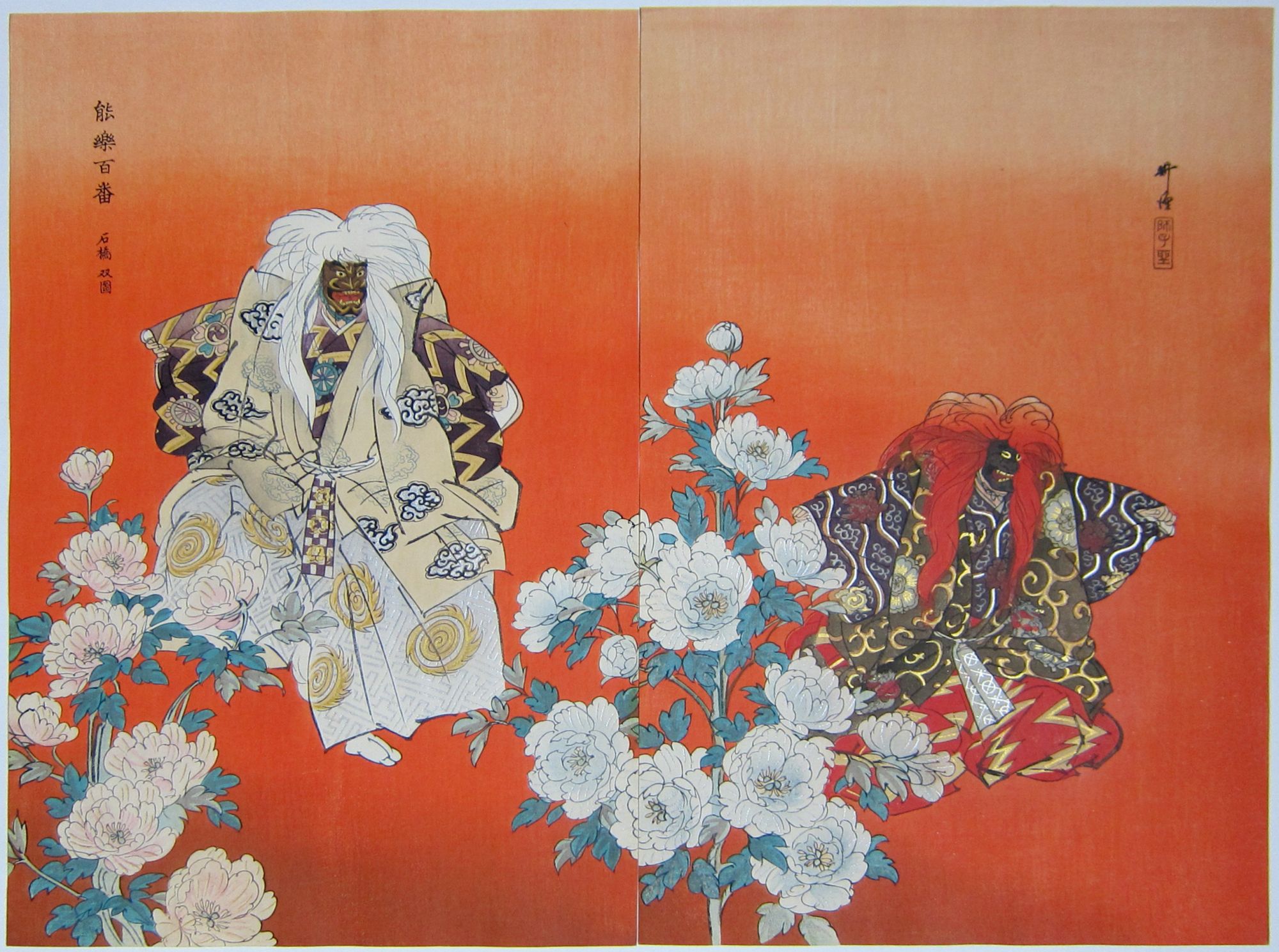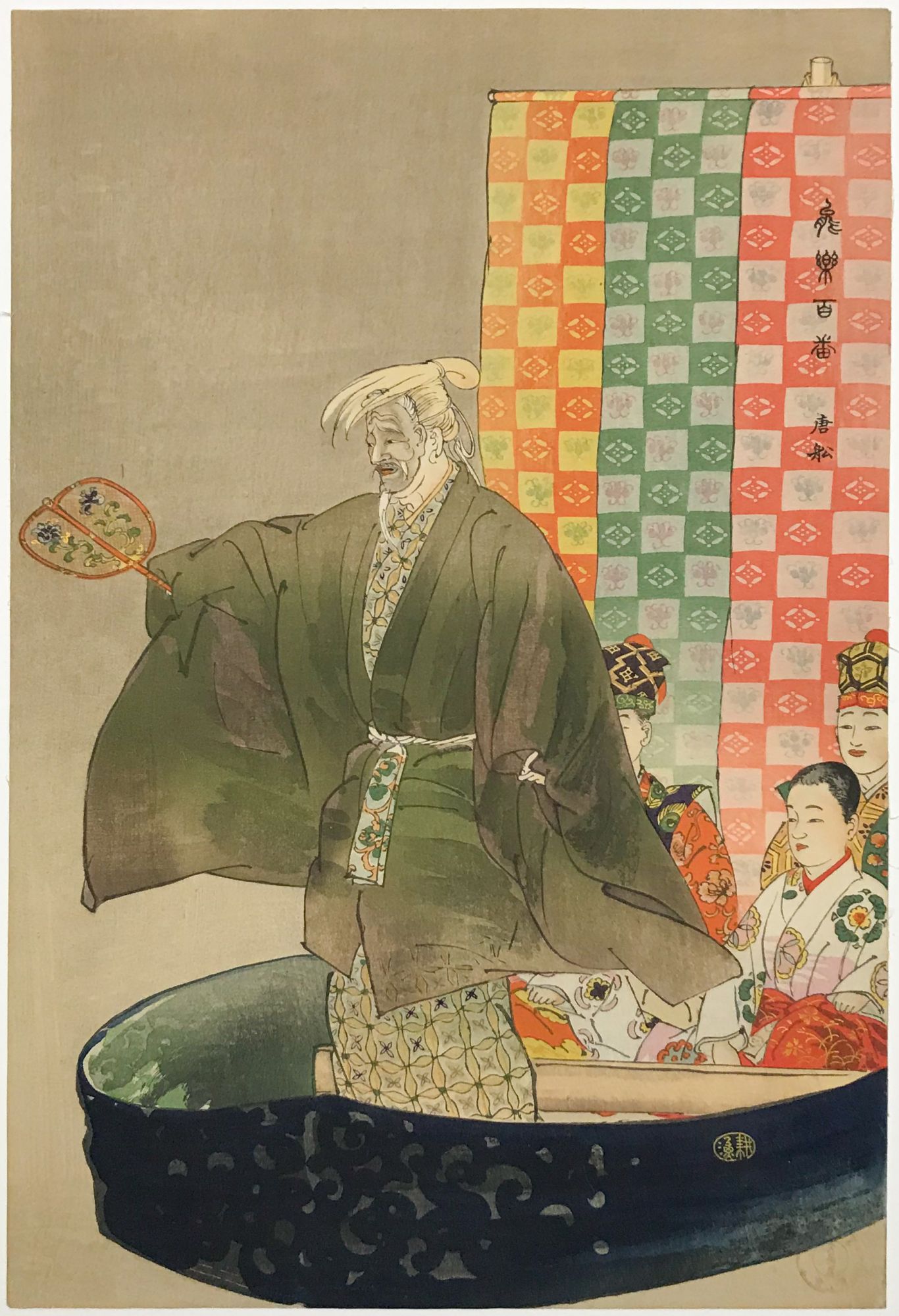Tsukioka Kōgyo 1869-1927
Shakkyō. The Stone Bridge.
- Category
- Japanese | 20th Century
- Series
- One Hundred Noh Plays
- Publisher
- Matsuki Heikichi
oban diptych, 53.0 cm × 39.0 cm
Superb impression, with extensive metallic pigments and bokashi. On thick, deluxe paper. Excellent colour and condition.
The priest Jakushō travels to China and India to visit places associated with the Buddha. He arrives at a stone bridge, whereupon a child appears and tells him that the Pure Land of bodisattva Monju lies on the other side. The boy says that crossing this bridge is treacherous for humans, but predicts that if the priest stays by the bridge, the bodhisattva will come to him. Whereupon, two lions, messengers of Manjuri Bodhisattva, appear and dance with fragrant peony flowers. In Now theatre, the shishimai or lion dance is a highlight of the play Shakkyō. Signed Kōgyo with artist's seal.
Sold
Tsukioka Kōgyo 1869-1927
Tōsen. The Chinese Ship.
- Category
- Japanese | Warriors War And Legend
- Series
- One Hundred Noh Plays
- Publisher
- Matsuki Heikichi (Daikokuya)
oban tate-e, 26.0 cm × 38.0 cm
Excellent impression, colour and condition.
The print depicts So Kei and his children on a boat to China. So Kei is taken prisoner during a maritime battle between China and Japan and forced into the service of Hakozaki, where he takes wife and raises two children. But he left behind two children in China prior to his incarceration, who thirteen years later, travel to Japan with a ransom for their father’s release. Once reunited, Hakozaki is moved by the children’s love and permits So Kei to return to China. But Hakozaki will not allow the Japanese children to return with them. The decision to stay with his Japanese children or leave with his Chinese children is too great, So Kei tries to kill himself by jumping from a boulder. However the children implore him by grasping his sleeves. Hakozaki, moved by the filial devotion, relents and allows So Kei and all his children to leave together.
Signed Kōgyo with artist’s seal. Printed February 1923.
£150


